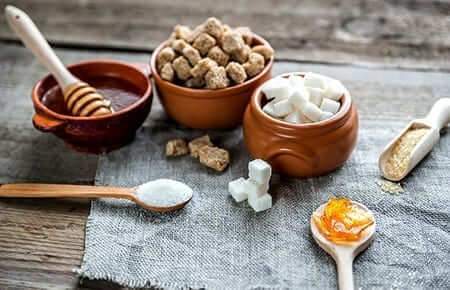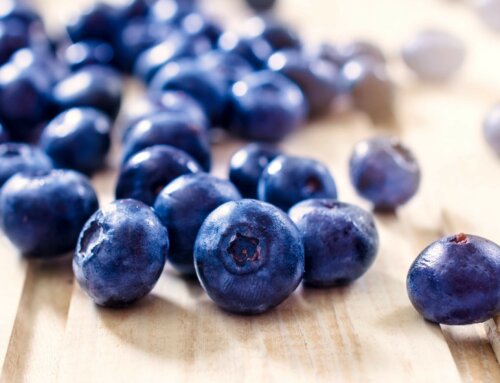When people have diabetes, their bodies cannot process or respond to insulin. As a result, they are advised to limit their intake of simple sugar. Learn more about 4 types of sugar – white, brown, honey and agave – and what they mean to you.
- Often people wrongly believe that when something is referred to as “natural,” it is better for you than other versions. Basic types of “regular sugar “include glucose from carbohydrates; fructose from fruits, high fructose corn syrup, agave, honey; sucrose, which is white table sugar from the sugar cane plant; and dextrose that is made commercially to add to foods as a sweetener. “Natural” sugars such as white or brown cane sugar, honey and agave are no better for people with diabetes than other type of sugars. They are all metabolized about the same way in your body.
- White sugar is refined by taking it from a sugar cane plant then washing it several times. Often it is bleached to give it a white appearance and extend its shelf life. White sugar is also referred to as table sugar. Raw sugar is the same as white sugar, but it has been processed less. The composition of white sugar is 50 percent fructose and 50 percent glucose. Most people with diabetes recognize consuming white sugar will lead to dangerous blood sugar fluctuations. As a result, they avoid white sugar, but may think other variations are healthier – which is not the case.
- Brown sugar is white sugar with molasses added to it. The level of brownness is related to how much molasses has been added to the white sugar. This type of sugar is also 50 percent fructose and 50 percent glucose. While molasses contains trace minerals, it is still 50 percent sugar. Brown sugar is regular sugar that is diluted. As a result, it has the same negative health effects for people with diabetes as any other kind of sugar.
- Honey has a slightly different composition that white sugar or brown sugar as it is made of 40 percent fructose, 30 percent glucose and 20 percent water. Honey is promoted as an antioxidant that has trace amounts of minerals and vitamins. While studies indicate it might be slightly less harmful to the metabolism than white sugar, it is still not a good choice for people with diabetes.
- Agave is derived from the same plant that we get tequila from. Because agave has a low glycemic index, it has been promoted as a healthy alternative to sugar but that is not the case. Its composition is 70 percent or more fructose, which is higher than what is found in the high fructose corn syrup people with diabetes are advised to avoid. Studies have shown fructose promotes elevated cholesterol levels and triglycerides, making it even worse than glucose. Fructose has also been linked as one of the causes of non-fatty liver disease. This makes agave the worst type of sugar for people with diabetes.
- All the types of sugar you consume will go to your intestines and be broken down into fructose and glucose and then get to your liver. Your liver does not recognize whether the sugar is natural or organic. They are all processed the same way and can lead to serious health complications for people with diabetes.
- If you are craving a sweet treat, stay away from the goodies that contain sugar. Choose tasty sugar-free desserts. They are a delicious way to get past your craving for sweets that could be harmful to your health and diabetes control.
While sugars might have different names and faces, they all react in your body in much the same way. People with diabetes need to minimize their intake of sugar and maintain a healthy diet. Sugar-free desserts and fruit such as berries are the best ways to satisfy your urge for a sweet snack.







Leave A Comment